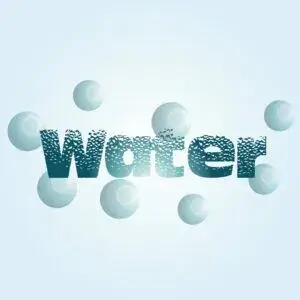Is there a difference?
Water is the elixir of life and the most common substance on Earth. It courses through our daily existence in numerous forms and functions. However, not all water is created equal. The debate over hard water vs. soft water taps into various disciplines – chemistry, health, and even economics. But is there truly a discernible difference between these two types of water? What implications does that difference hold for us in our day-to-day lives? This article dives into the complexities of hard and soft water, disentangling facts from common misconceptions.
Understanding the Basics: Hard Water vs. Soft Water
To embark on this aqueous journey, let’s explore the fundamental differences between hard and soft water:
- hard water: Rich in minerals such as calcium and magnesium, hard water is a natural consequence of groundwater moving through limestone and chalk deposits.
- Soft Water: Characterized by its low concentration of calcium and magnesium ions, soft water predominantly contains sodium or potassium ions instead.
The Science Behind the Scenes
The hardness of water is scientifically quantified by the amount of calcium carbonate (measured in milligrams per liter) present in the water. This concentration fundamentally alters not only the water’s chemical properties but also its behavior with detergents, soaps, and appliances.
Why Perplexing Minerals Matter
Calcium and magnesium ions, with their positive charges, have an affinity for soap, which is negatively charged. They bind to create soap scum – that grimy layer that can often be seen on bathroom tiles and fixtures. Moreover, these mineral ions can precipitate out of water when heated, leading to limescale buildup. This buildup can wreak havoc on household appliances, reducing efficiency and increasing energy costs over time.
The Touch and Taste of Water
Moving from the theoretical to the tangible, let’s consider how water hardness impacts our sensory experiences.
Textural Differences
Soft water feels distinctly different on the skin—often described as a slippery sensation—owing to its reduced mineral content and its ability to lather soap more readily. Conversely, hard water can leave skin feeling dry and hair dull due to its mineral richness, which can strip away natural oils.
Culinary Contrasts
The gustatory implications are equally worth noting. Hard water can impart a distinct flavor due to its mineral content, which can affect the taste of brewed beverages like tea or coffee. Soft water, due in part to its sodium content, can also alter the taste but tends to be more a neutral carrier of flavours—a blank canvas for ingredients to express their full culinary potential.
Health Considerations
Zooming in on health implications, the debate can get as murky as untreated water. However, several points emerge with clarity:
- Mineral Intake: Hard water can contribute to the daily dietary intake of essential minerals, albeit in a highly variable and uncontrolled manner.
- Skin and Hair: Soft water is often gentler on the skin and hair, mainly because it allows for the more effective use of soaps and shampoos, potentially mitigating the risk of dermatological conditions exacerbated by soap residue.
The Ecological and Economic Angle
In this era of environmental consciousness and economic scrutiny, we must also peer into the ecological and economic impacts of water hardness.
Sustainability Stakes
Hard water may boast of being the ‘natural’ state of water, yet the environmental costs accrued through appliance inefficiency and the increased need for detergents cannot be ignored. Conversely, the process of softening water, typically through an ion exchange system, itself consumes resources and generates waste, notably salt brine.
The Monetary Measure
Economically speaking, the constant battle against the effects of hard water can inflate household expenses. From increased spending on cleaning agents to the premature replacement of boilers and washing machines. Soft water may come with its initial setup costs for a softening system, but can potentially offer savings over time through reduced appliance wear and decreased consumption of cleaning products.
Myths and Misconceptions
In the realm of water hardness, certain misconceptions frequently cloud public perception:
- Myth: Soft water can lead to health problems due to its sodium content.
- Reality: The sodium added through most water-softening processes is negligible and typically not a health concern for most individuals.
- Myth: Hard water is unsuitable for consumption.
- Reality: Hard water is generally safe to drink, and the minerals it provides can be beneficial.
Conclusion
The difference between hard water and soft water indeed exists, and manifests in a myriad of ways—from the unyielding build-up of limescale in your kettle to the subtle caress of soft water on your skin after a shower, from the nuanced flavours in your morning coffee to the complexities hidden within your monthly utility bills.
The choice between hard vs. soft water is not to be taken lightly. It demands a nuanced understanding of personal health, lifestyle preferences, appliance lifespans, environmental impact, and economic considerations. Whether one opts for the mineral-rich embrace of hard water, or the more yielding and appliance-friendly soft water, the decision is loaded with a spectrum of implications that resonate through the daily patterns of our lives. For more info contact Perfection Plumbing & Drain Cleaning Ltd.

